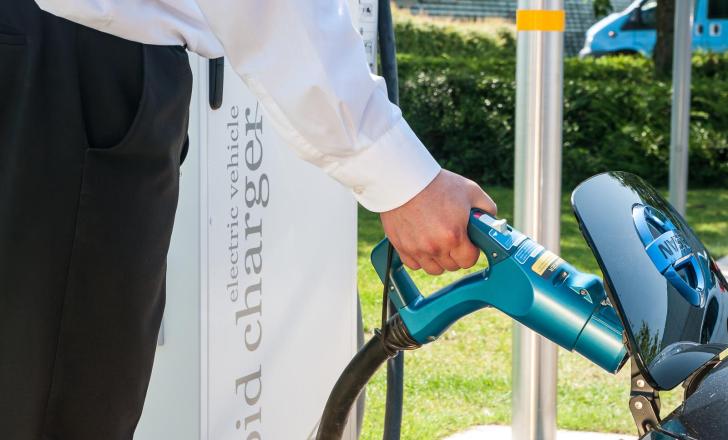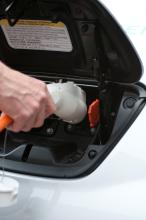The EU plans to support studies on the development of electric vehicle (EV) traffic in Northern Europe. The EU's TEN-T Programme is providing €1 million for a study as well as a pilot on the deployment of EVs and the necessary charging infrastructure along major highways in southern Sweden, Denmark and northern Germany. The project will help boost long distance travel using EVs across borders.
One of the major limiting factors to the wider use of EVs on European roads is lack of suitable charging stations.

The use of EVs in Northern Europe will benefit from EU investment in a study aimed at finding out how to develop their use
The EU plans to support studies on the development of electric vehicle (EV) traffic in Northern Europe. The EU's TEN-T Programme is providing €1 million for a study as well as a pilot on the deployment of EVs and the necessary charging infrastructure along major highways in southern Sweden, Denmark and northern Germany. The project will help boost long distance travel using EVs across borders.
One of the major limiting factors to the wider use of EVs on European roads is lack of suitable charging stations. This project will carry out feasibility studies on consumer preferences and user acceptance of electric vehicles and the related charging infrastructure, as well as the supporting consumer services. It will also make a pilot deployment of fast charging stations along the highways in southern Sweden (E20, E6 and E22), Denmark (E20, E45 and E55) and northern Germany (E45 and E22).
The key objective of the study is to clearly demonstrate the market readiness of fast charging technologies, serving multiple types of electric vehicles at the same locations and their consumer acceptance across borders in northern Europe. The study is also expected to show that sufficient infrastructure and innovative service solutions for e-mobility could expand the possibilities of electric travel to long-distance (over 500km) and ultimately encourage the take-up of EVs.
One of the major limiting factors to the wider use of EVs on European roads is lack of suitable charging stations. This project will carry out feasibility studies on consumer preferences and user acceptance of electric vehicles and the related charging infrastructure, as well as the supporting consumer services. It will also make a pilot deployment of fast charging stations along the highways in southern Sweden (E20, E6 and E22), Denmark (E20, E45 and E55) and northern Germany (E45 and E22).
The key objective of the study is to clearly demonstrate the market readiness of fast charging technologies, serving multiple types of electric vehicles at the same locations and their consumer acceptance across borders in northern Europe. The study is also expected to show that sufficient infrastructure and innovative service solutions for e-mobility could expand the possibilities of electric travel to long-distance (over 500km) and ultimately encourage the take-up of EVs.






